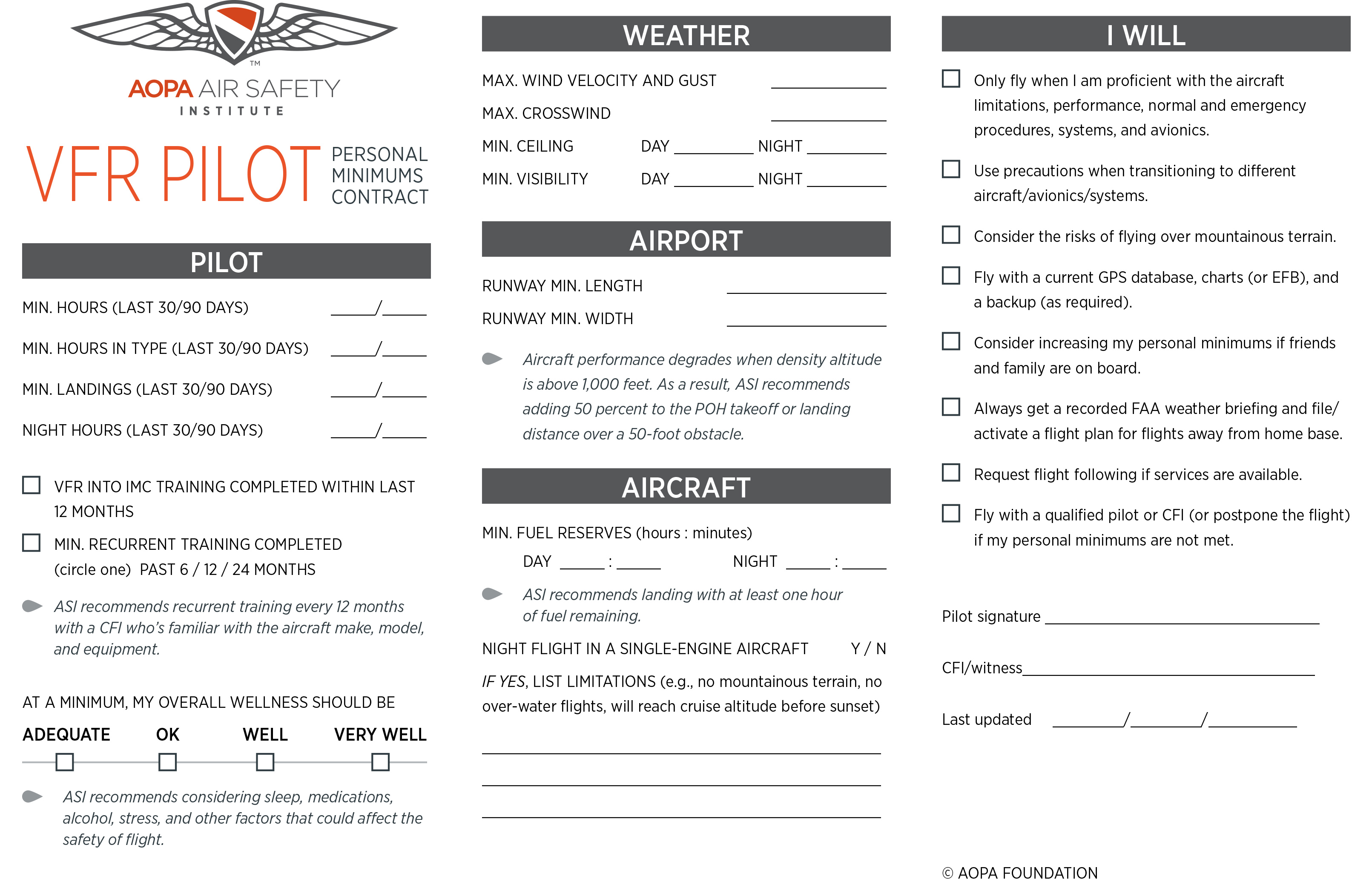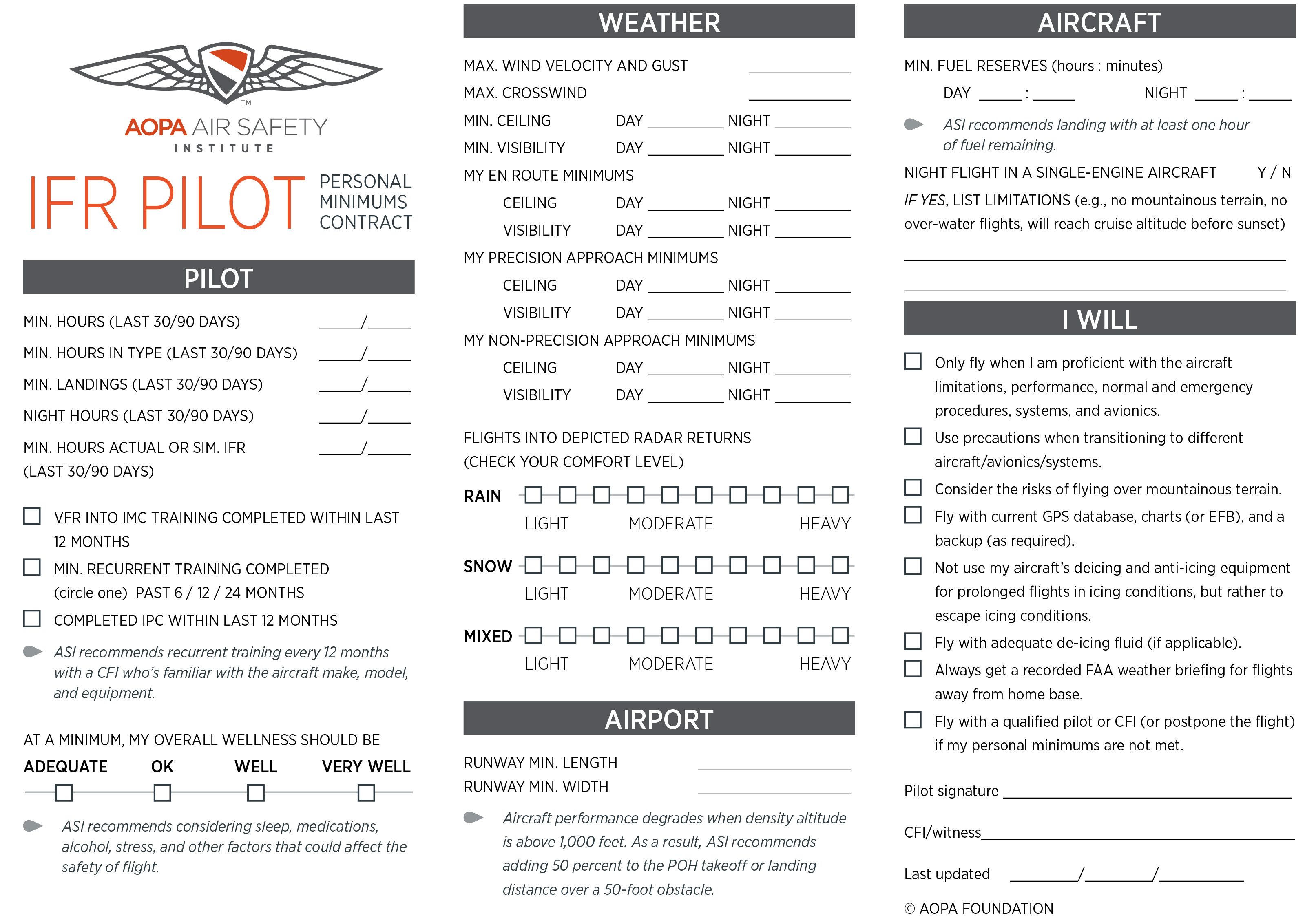Aging and Adjusting
Safety Spotlight: Aging Gracefully

At different ages, and for different reasons, the body begins to show signs of wear. The best way to cope with these changes is to know how they will affect you and how you can adjust.
Focus on Vision
Changes in visual acuity are the most noticeable and can be troublesome at first. These changes involve a narrowed peripheral vision, degraded near vision and night vision, and difficulty in shifting focus quickly. For example, you may find it more difficult to spot traffic and flying at higher altitudes seems to affect your visual sharpness.
Use supplemental oxygen to help improve your vision at night and at altitude.Remedies:
- Get regular eye exams and use prescription bifocals or progressive lenses if you need near vision correction
- Wear haze-cutting prescription sunglasses
- Use supplemental oxygen to help improve your vision at night and at altitude
- Allow more time to scan for traffic and use traffic alert equipment to supplement your visual scan
Musculoskeletal Issues
You may notice a loss of strength and decreased flexibility. In addition, you may find that cockpit fatigue due to heat and turbulence sets in earlier than it once did. Or that it has become more difficult to perform fine motor tasks like pressing small buttons.
Remedies:
- Combat fatigue:
- Fly in the morning or late afternoon when the air is smoother and cooler
- Fly at lower altitudes (when possible) to improve oxygen saturation
- Plan more frequent cross-country stops
- Stay hydrated
- Enlist the aid of cockpit companions to help with things like radio tuning
Medical Self-Assessment: Fatigue
Discover how sleep environment, work shift, medical conditions, jet lag, and other factors can affect fatigue. This video from the Medical Self-Assessment: A Pilot’s Guide to Flying Healthy online course explains.
…you may find that cockpit fatigue due to heat and turbulence sets in earlier than it once did.Say Again
Hearing—especially in the high-frequency range—diminishes with age. The problem may be exacerbated by the fact that older pilots may have flown years without a headset in a noisy airplane.
Remedies:
- Have your hearing checked by a specialist
- Purchase a noise cancelling (or an in-the-ear type) headset
- Ask ATC to speak slowly
- Remind passengers to be quiet when you’re talking to ATC
Ask ATC: Fast Talkers
What should you do if an air traffic controller talks too fast for you to copy and read back? In this video, air traffic control specialist Sarah Patten explains the best way to handle the situation.
Short-Term Memory
Your “working memory” is often used in flying. But as you age, you may find it harder to remember things like altitude assignments, transponder codes, and radio frequencies. Again, fatigue can also play a role in recalling those items.
Remedies:
- Keep a pen handy on a lanyard around your neck to be ready to copy clearances
- Use an altitude reminder device (you can even adapt an ADF dial for this purpose)
- Ask flying companions to back you up on the numbers
- Fly in the morning when you’re less prone to fatigue
- Consider purchasing a clearance recorder to replay ATC communications
Decisions, decisions
You have grown older and gotten wiser through experience. However, aging can make it more difficult to handle the kinds of decisions that sometimes have to be made in the cockpit.
Remedies:
- Spend more time doing preflight and contingency planning
- Have a realistic Plan B and be prepared to use it
- Get a thorough weather briefing and double-check notams
- Be flexible with your schedule to combat pressure to “get there”
- Be realistic about your skills and proficiency
- Fly when rested
Fly Within Your Personal Minimums
Download the AOPA Air Safety Institute’s VFR and IFR personal minimums contracts to help you get started.
Age Related Changes
Learn what pilots have to say about the effects of aging on tasks such as flying an instrument approach and processing information. Listen to how they are adjusting.

